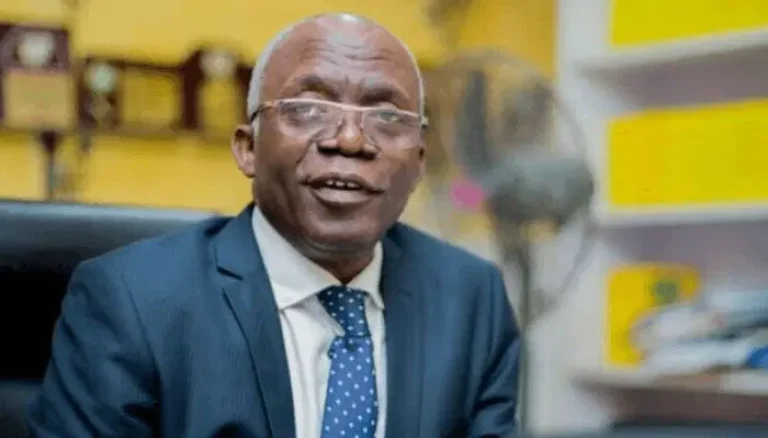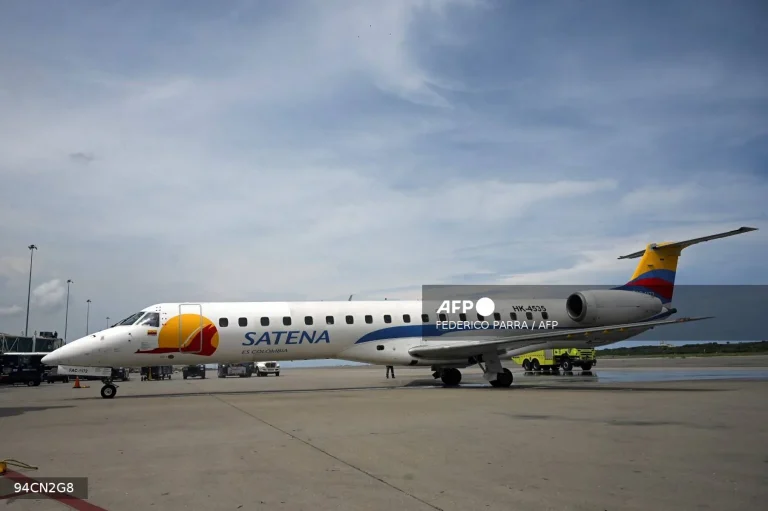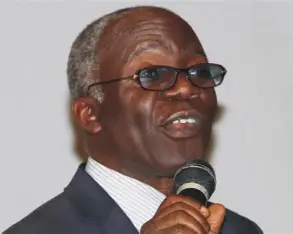
ON Wednesday, October 19, 2022, the Minister of Works and Housing, Mr. Babatunde Fashola, had at a press conference to highlight the achievements of the Buhari administration in the areas of Works and Housing, boasted that despite the shortfall in federal revenue arising from a depressed economy and drop in oil revenue, the Federal Government has been able to construct and complete at least 8,352.94 kilometres of roads and created no fewer than 339,955 jobs between 2016 and 2022.
The minister did not stop there. He also claimed that 12 major federal roads spanning 896.187 kilometres in the country within the same period had been rehabilitated, with attendant reduction of travel time by 56.20 percent and added value to the people in the communities where the roads pass through.
The Minister was to reiterate these claims on Tuesday November 1, 2022 while defending the 2023 budget proposal of his ministry at the House of Representatives. At the event, Fashola informed that the ministry was undertaking a total of 1,642 highway contracts nationwide at a total contract sum of N10,395,294,937,624.20. He said that these projects had special funding mechanisms which included the Presidential Infrastructure Development Fund, PIDF, SUKUK and Nigerian National Petroleum Company Limited, NNPCL.
According to him: “The Ministry is currently undertaking a total of 1,642 highway contracts at a total contract sum of N10,395,294,937,624.20 spread over the six geo-political zones of the country. A total of six selected critical projects are being funded under the 2022 PIDF Project which is managed by the Nigerian Sovereign Investment Authority, NSIA. As at date, the total sum of N754,790,502,612.80 has been certified out of the sum of N1,314,753,921,766.72.
This translates to a performance of 57.41 percent. A total of three selected critical projects are being funded under the 2021 Sovereign Sukuk Issuance which is managed by the Debt Management Office, DMO. As at date, the total sum of N157,920,183,472.88 has been drawn out of the sum of N210,565,000,000.00. This translates to a performance of 75 percent.”
Recall that the minister had in November last year made similar claims when he appeared before the House of Representatives Committee on Works to defend the 2022 budget proposal in Abuja. At the event, he said his ministry had about 13,000km of roads and bridges under construction and rehabilitation in 856 contracts, comprising 795 projects and aggregate length of 816.29km of roads and 733.2m of bridges.
A “Fact Sheet” released to celebrate the achievements of the Buhari administration in the last seven years (2015-2022) also made similar claims. According to the “fact sheet”, government had through the Presidential Infrastructure Development Fund, PIDF, invested over a billion dollars in three flagship projects: Lagos-Ibadan Expressway (for completion in 2022), Second Niger Bridge (for completion in 2022), Abuja-Kaduna-Zaria-Kano Expressway (first phase for completion in 2023). According to the fact sheet, “so far, more than a trillion Naira has been mobilised through Executive Order 7, for road projects across all six geopolitical zones of the country, like Bodo-Bonny in Rivers and Apapa-Oshodi-Oworonshoki-Ojota in Lagos.”
Apart from all the above, Nigerians were also informed that the Highway Development and Management Initiative, HDMI, a public-private partnership programme, has been able to mobilise, in its first phase, over a trillion Naira in private investment into the development and maintenance of 12 roads, amounting to 1,963km in length.
In addition to that, the Federal Government also claimed that more than N600 billion worth of Sukuk Bonds has been raised since 2017 for more than 40 critical road projects across all six geopolitical zones, and that between November 25 and December 13, 2021, the Federal Government handed over to benefiting communities 941 km of completed Sukuk roads connecting 10 states in five geo-political zones of the country.
But reports from our correspondents across the country contradict many of these claims. Road users, community and traditional leaders, local council officials and even some governors have given vent to their frustrations and anger over the deplorable state of federal roads in their areas.
Tales of woe from the North
By Wole Mosadomi, Minna; Peter Duru, Makurdi; Marie-Therese Nanlong, Jos; Ndahi Marama, Maiduguri; Ibrahim Hassan-Wuyo, Kaduna; Musa Ubandawaki, Sokoto; Charly Agwam, Bauchi; David Odama, Lafia; Ogalah Ibrahim, Katsina; Bashir Bello, Kano; Femi Bolaji, Yola
Deplorable conditions of federal roads in Borno
In Borno State, the deplorable condition of federal roads has continued to cause suffering for drivers of trucks, cars and many other vehicles, sometimes resulting in loss of lives and property due to avoidable accidents. The bad roads include 185km Maiduguri-Damboa-Biu Road, which has remained inaccessible for many years due to activities of Boko Haram.
The about 250-km drive Maiduguri-Damaturu-Biu Road, which runs into the heart of the Sambisa Forest, was built in the 1970s by the Federal Government. The Yobe State Government reconstructed its portion (about 80kms), terminated it at its border with Borno State, which is about 40kms drive to the city of Biu. Unfortunately, it takes motorists about three hours to complete the remaining 40kms due to the bad condition of the road.
But the 34-km Damboa-Chibok-Mbalala Federal Road which was neglected by previous administrations in the southern parts of the state, attracted the attention of the state government which began reconstruction work on it, only for terrorists to attack workers at the sites and kidnapped many of them last year leading to abandonment of the work. A motorist, Audu Isa, in an interview described the Biu-Azare-Shaffa- Garkida federal highway linking Gombi Local Government Area of Adamawa State which was constructed more than 40 years ago as “a death trap.”
Members of communities also expressed concerns over the failed portions of about 30-km Yimirshika-Sakwa-Marama-Kidang Rural Feeder roads linking two very important federal highways. According to them, the condition has been worsened by flooding and lack of proper culverts, which have been washed away by flood. Vanguard was also informed that the Maiduguri-Gamboru-Ngala road, the 120-km Biu-Gombe Road, the 150-km Biu-Numan Road and host of other federal roads, are all in terrible conditions. Travellers spend an average of four hours passing each of these roads.
While speaking to Vanguard, the Chairman of Road Transport Employers Association in Nigeria, RTEAN, Alhaji Bunu and Secretary of National Union of Road Transport Workers, Comrade Ahmadu Musa, lamented over the deplorable condition of federal roads in the state. They appealed to the Federal Government to intervene by reconstructing the failed portions to save users’ time and minimise accidents.
Also lamenting, Mallam Aliyu Hassan, a community leader in Biu Local Government Area said: “It is unfortunate that all federal roads linking Biu have become very bad as if there are no representations in the state. We have four roads linking Biu to Gombe, Yobe, Adamawa states, but all are in terrible conditions.”
Potholes, insecurity and delays banes of federal roads in Kaduna
In Kaduna State, the major federal road that traverses the state is the Abuja-Kano highway which has since been under reconstruction. There is also the Kaduna-Saminaka to Jos highway, with a major part along the Saminaka axis in need of repairs; the Kaduna-Kachia Road, and the Zaria-Funtua highway. The major Abuja-Kaduna highway, apart from the problem of insecurity along the road causing fear and apprehension among commuters, members of the public have also lamented the slow pace of the project.
To many drivers, series of diversions either from the Abuja axis or from the Kano axis, have caused lots of delay in travel time and even fatal accidents. A commercial driver, Malam Abdullahi, said a journey of not more than five hours from Abuja to Kano now takes over eight hours or more because of the condition of the road. An official of the Federal Road Safety Commission, FRSC, said 37 deadly ditches were discovered between Rijana and Jere towns along the Kaduna-Abuja Highway, adding that these are responsible for most of the accidents on the road.
The FRSC Kaduna Acting Sector Commandant, Garba Lawal, said there were also about 11 diversions on the road because of the planned road construction which need to be removed. “We have those dangerous potholes from Rijana to Jere, but the bigger ones are about 37 of them on the road and they are very deep. We are using gravel to fill the holes. But you know companies like Berger can do better because they have bigger machines to level the sands after filling the potholes,” he said.
Recently, the Minister of State, Works and Housing, Umar Ibrahim El-Yakub, said it was security challenges that stopped the Abuja-Kaduna Road project, but assured of speedy completion. He said due to the rains, several potholes have been opened on the Abuja-Kaduna Road and the palliative work could not have been done effectively at that time.
Only one out of 8 federal roads good in Adamawa – Federal Controller of Works
Adamawa has eight federal roads, covering over 1,200 kilometers. The roads include Numan, Cham; Yola-Hong-Mubi, Maraba Mubi-Michika and Yola-Numan Road. Others are the Numan-Jalingo Road, Yola-Fufore-Guri Road, Mayo Belwa, Toungo and Jabbi-Lambi-Belel Road. The Federal Controller of Works in Adamawa State, Abubakar Salihu, an engineer, told Vanguard that of all the roads, only the Numan-Yola was in good condition.
He disclosed that the rest of the roads were in complete state of disrepair but undergoing construction and reconstruction. He added that contracts for the construction of some of the roads were awarded over 10 years ago but no appreciable efforts have been made in completing the projects.
“Many of the construction firms are owed by the government which is responsible for the slow pace of work. Funds are not forthcoming as at when due and you know the contractors rely on funds to execute projects. They execute projects based on availability of funds released to them.” Salihu said that many of the already deplorable roads were washed away by the recent flooding in the state.
Criminals taking advantage of failed sections of roads in Plateau
Federal roads in Plateau State are generally in deplorable conditions, though some measures have been taken recently to give commuters some level of relief. From the road leading to Kaduna State to the one leading to Bauchi State and the one leading to Taraba and Nassarawa states, there is no smooth ride as major parts of the road are bad.
Most motorists expressed displeasure, saying that criminal elements take advantage of the bad spots to unleash mayhem on them. Commuters along the Jengre-Saminaka Road, Jos-Bauchi Road, Ganawuri-Manchok Road and Riyom-Forest highway – all lamented the bad condition of the roads and the adverse effects on their businesses.
A commercial driver, Jonathan Madaki who plies the Jos-Jengre-Saminaka road said: “There is no week that you will not hear of an armed robbery case because the criminals take advantage of the bad condition of the road to waylay travellers. I escaped such an attack around Zabolo recently.
There is a need for these roads to be fixed so that taxpayers can see the benefit of their payment.” Umar Ishaya, a trader who plies the Ganawuri-Manchok road said the bad condition of the road has made drivers boycott the road and “the few who still ply the road charge higher fares so that they can fix their vehicles which always breakdown as the result of the bad road.”
He added that sometimes, farm produce comes very cheap but expenses on transportation caused the prices of the items to be beyond the reach of the common people and appealed for immediate repairs. A roadside fruit seller along the Jos-Bauchi Road, Monica Agwom, said she also feels the negative impact of the bad road, adding: “The shoulders have been washed off by rain and gradually, the main road will be affected. Because there are no shoulders for cars to park, motorists don’t stop to buy from us and this is affecting our source of income.”
However, the Chairman of Riyom Local Government Council, Mafeng Gwallson, has appealed to the Federal Government to repair the bad portions of the Ganawuri-Manchok highway to ease the hardship being experienced by motorists plying the road. Gwallson who visited dilapidated federal roads within his area expressed worry over the hardship motorists are being subjected to and appealed to them to be patient as he would report to the Federal Emergency Roads Maintenance Agency, FERMA, to consider their plights and fix the roads.
Public Enlightenment Officer, FRSC, Plateau State Route Commander, Peter Longsan, also noted that bad roads cause gridlock, increase fuel consumption, lane indiscipline or route violation and disorderliness on the road as drivers struggle to dodge potholes, and these can lead to head-on collision. Longsan added that bad roads cause “damage to many parts of the vehicle, especially tyres, which can cut or burst.
The stress in attempting to maneuver inbetween potholes can lead to increased fatigue, and can cause body pains and aches. Deep potholes can make a loaded vehicle, especially trucks and articulated vehicles, lose their track and fall off. Bad roads can also retard the attainment of FRSC Vision and Mission, increase manhour losses by our men in controlling traffic to ensure lane discipline and orderliness on the road.”
An official of FERMA in Jos said: “Federal roads in the state are in deplorable states, but the FERMA field office carries out maintenance, either through direct labour or contractors to keep the roads motorable, and this is based on funds available. We utilise our funds judiciously to maintain roads but the rains and floods hindered our work recently. You will see us back on sites as soon as funds are released to us.
You can see the efforts on the Jos-Mararaba-Abuja Road, the Vom-Manchok Road too and the Angle D to Ganawuri; the heavy rains stopped work but we will mobilise back, everything depending on the availability of funds. The schedule of contract for the state in 2022 shows there has been the award of contracts, award letters will soon be given for contractors to return to sites especially as the rains have subsided.”
80% of Niger roads in bad shape
Niger State has the longest federal roads and largest land mass in Nigeria. They cover about 1,437 kilometers and spread across 15 out of the 25 local government areas of the state. Out of this, 1,115 kilometers, representing about 80 percent of this trunk ‘A’ roads in the state are presently in a deplorable condition which has affected the livelihood of people and revenue for the state government.
Some of the roads presently in bad shape are the Jebba-Mokwa-Bokani-Tegina-
Besides the negative economic impact on the state and the residents, bandits and other criminals have built their hideouts close to these bad spots to unleash terror on travellers with many lives and property worth millions of naira lost to these criminals and accidents. Several attempts had been made by previous administrations to fix these federal roads, but all ended on the drawing board and as a political gimmick to woo the people of the state to get their votes during elections.
For example, the administration of former President Goodluck Jonathan came to the rescue with Federal Government intervention by awarding a contract of N9billion for the reconstruction of the busiest Bida-Mokwa Highway which is now the only motorable federal highway in the state.
(culled from Vanguard)








